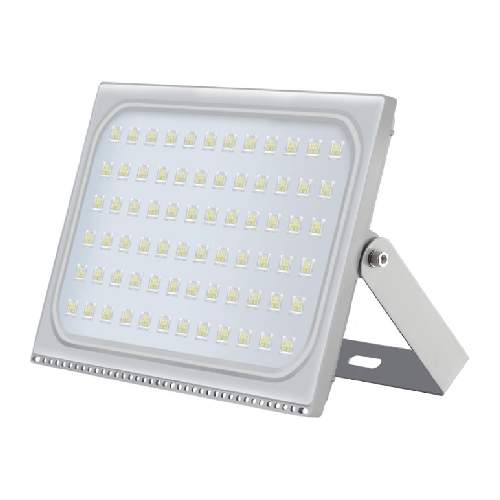
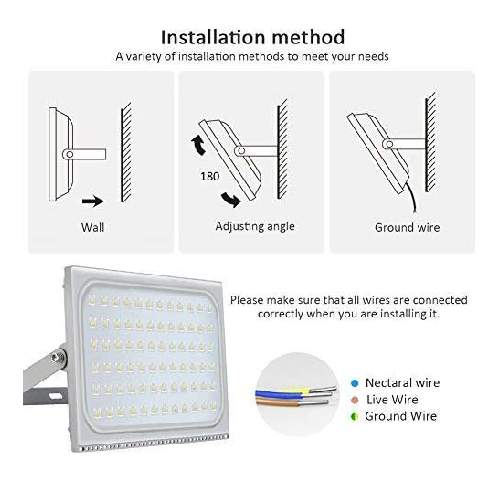
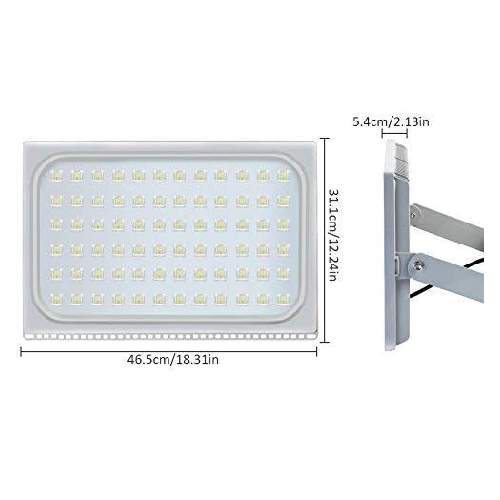
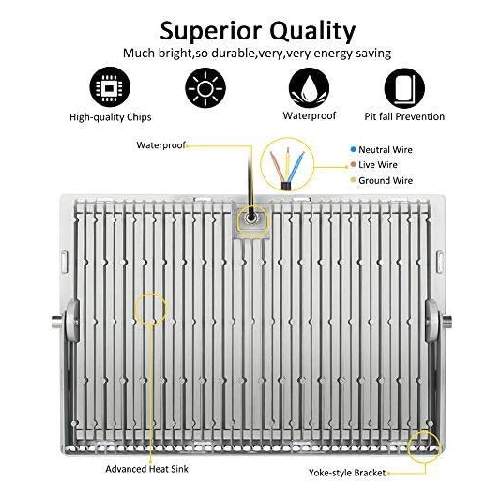
Get your complimentary lighting design today
Table of Contents
TogglePower: 500W
Lumens: 85,000 lumens
Color Temperature: 6000 K
Color Rendering Index: 85+
Replace: 1000W Metal Halide
Beam Angle: 15° / 45° / 60° / 90°
Life Span: 130,000 hours
Warranty: 7-12 years
These outdoor flood lights feature a high-pressure cast aluminum housing with an ultra-thin design, equipped with multiple heat dissipation fins that ensure effective cooling. The secondary light distribution PC lens enhances light transmission, maximizing visibility on the cricket field. Additionally, the lights are made from environmentally friendly materials that are pollution-free and recyclable, making them a sustainable choice.
The flood lights are designed for straightforward installation, offering a fixed bracket that can be adjusted within a 180-degree range. This versatility allows for mounting on ceilings, walls, ground surfaces, or even tree branches. With waterproof and dustproof ratings, these lights are suitable for various outdoor environments, ensuring reliability in all conditions.
Boasting an IP67 waterproof rating, these flood lights are well-sealed with waterproof sealing rings, making them resistant to harsh weather conditions. They are ideal for a range of outdoor lighting needs, including cricket fields, gardens, squares, billboards, factories, docks, and stadiums. However, it’s important to note that these flood lights should not be submerged in water.
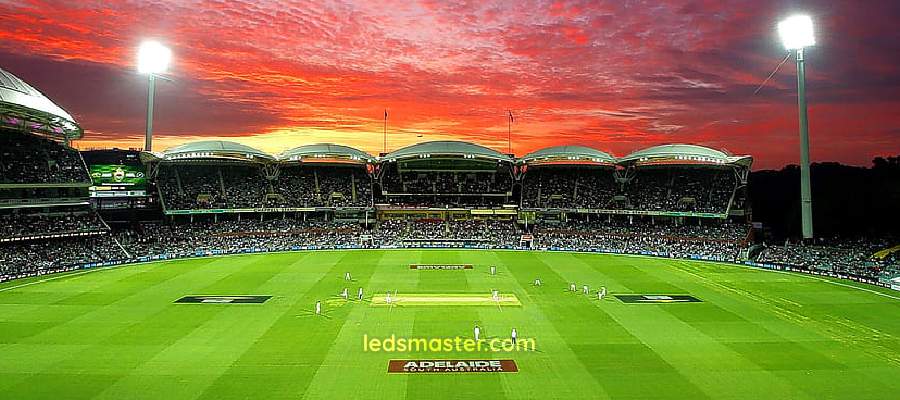
With a powerful output of 85,000 lumens and a color temperature of 6000 K, these lights provide exceptional brightness with a wide beam angle option of 15°, 45°, 60°, or 90°. Compared to traditional 1000W metal halide lights, these LED flood lights are highly energy-efficient, consuming up to 70% less electricity while maintaining high performance and low operational costs.
Designed for longevity, these flood lights have an impressive lifespan of 130,000 hours, ensuring minimal maintenance and replacement needs. With a warranty of 7 to 12 years, users can have confidence in the durability and reliability of this lighting solution, making it an ideal choice for cricket fields and other extensive outdoor areas.
To adequately illuminate a cricket field, several factors need to be considered, including the field’s size, desired lux level, and the type of lighting fixtures used. Typically, a cricket field requires an average illuminance of 300 to 500 lux for training sessions and 700 to 1200 lux for professional matches.
For a standard cricket field, which typically measures between 150 to 200 meters in diameter, proper illumination is crucial for both player safety and viewing experience. High-powered flood lights are essential in achieving the necessary brightness across the entire playing area. Fixtures such as 500W flood lights, which output around 85,000 lumens, are commonly recommended. These powerful lights not only provide sufficient light intensity but also help in reducing energy consumption compared to traditional lighting options.
The design of the lighting system should ensure that all areas of the field receive uniform illumination. This means considering not just the overall brightness, but also the light distribution patterns to prevent dark spots and shadows that could affect gameplay.
To effectively light a cricket field, you typically need between 20 to 40 flood lights. The exact number depends on various factors, including the field’s dimensions and the lighting configuration. Strategic placement of these fixtures around the perimeter is essential to ensure even light distribution. This setup minimizes shadows, which can be particularly disruptive during a game, as players need consistent visibility of the ball and the playing surface.
For instance, placing lights at calculated angles and heights can create a balanced light output, further enhancing the visibility for players and spectators alike.
Conducting a thorough lighting design assessment is vital for determining the exact number of lights required for optimal performance. This assessment should encompass several critical factors, including the specific beam angles of the fixtures, which can range from 15°, 45°, 60°, to 90°. Each beam angle affects how light spreads across the field, impacting both illumination levels and shadow formation.
Proper fixture placement is equally important. Lighting professionals typically utilize software simulations to model light distribution and identify the best layout for the flood lights. This ensures that the lighting meets the required lux levels while also considering the safety and comfort of players and spectators.
Engaging a lighting specialist can provide customized solutions tailored to the unique needs of your cricket field, ensuring that the lighting setup enhances performance while adhering to any relevant regulations or standards.